Prime Minister Narendra Modi today said that recent events have proven that the so-called proxy war against India is, in fact, a well-planned war strategy.
Addressing a public gathering at Mahatma Mandir in Gandhinagar, Gujarat, he said that following the events of May 6, India no longer needs to provide proof of terrorist activity-the evidence is now being provided by those across the border themselves.
The Prime Minister pointed out that terrorists killed were given state honors in Pakistan, with the national flag draped over their coffins and salutes offered by the Pakistani army.
He said this clearly establishes that these are not isolated terrorist acts but part of a coordinated military strategy.
Mr. Modi said India does not seek enmity with anyone and wishes to live in peace. He added that the country aspires to progress in a way that contributes to the welfare of the world, and the government is working with dedication for the upliftment of millions of Indians.
Highlighting past policy missteps, the Prime Minister urged the younger generation to study the historical decisions that harmed national interests.
Referring to the Indus Waters Treaty of 1960, he said that it was agreed dams in Jammu and Kashmir would not be cleaned or de-silted.
Bottom gates designed to remove sediment were ordered to remain shut and remained so for decades. As a result, reservoirs that once held water at full capacity have now dropped to just 2 or 3 percent, he said.
Prime Minister Narendra Modi said there will be no compromise in achieving the vision of Developed India on completing 100 years of independence and every citizen had to play his role in realising this dream. He said the economic development of tier 2 and tier 3 cities is extremely important to make India one of the top three economies of the world.
Prime Minister also urged the countrymen to use make in India products.
Earlier, Prime Minister Modi inaugurated and laid the foundation stone for development projects worth Rs 5,536 crore at Mahatma Mandir in Gandhinagar.
The projects span vital sectors including urban development, infrastructure, water resource management, healthcare, and revenue services.


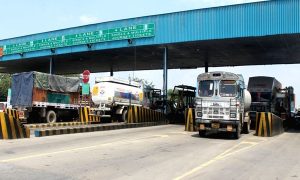

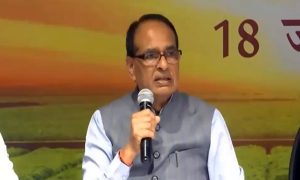

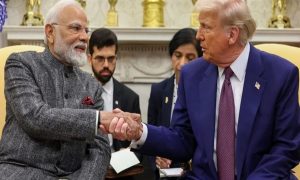





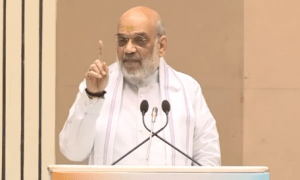

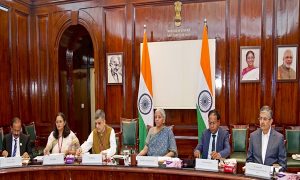

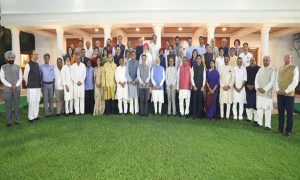



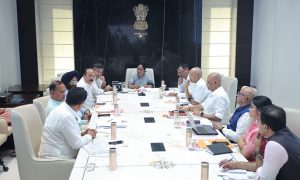







 WhatsApp us
WhatsApp us